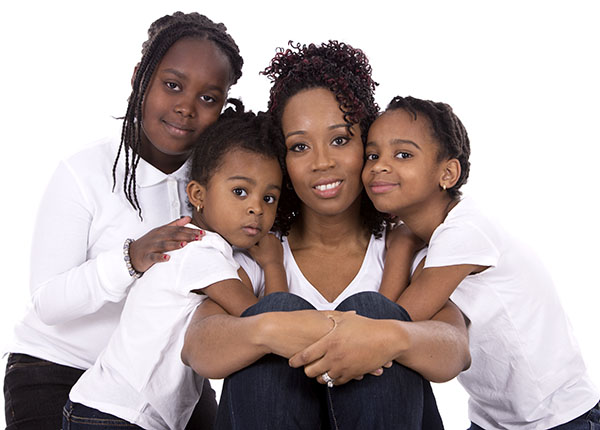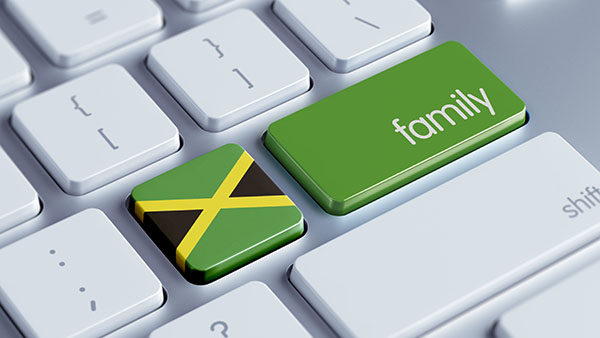
The road to permanent residence for Jamaican immigrants in the United States can take two decades to complete. Even for parents who have earned naturalization status, the process requires navigating a family unity visa system with a long and growing backlog. Such waits are not uncommon for immigrants from Jamaica. This article shares the story of one mother and daughter who survived the ordeal. It also calls for fixing the green card system now in place.
Contrary to an image perpetuated by public officials, media personalities, and bloggers opposed to immigration reform, not all immigrants jump the border to reunite with family members.
Many immigrants, seeking family reunification, pursue a green card through the visa processing system. A system in need of repair and reform.
A recent story of a Jamaican immigrant turned U.S. citizen and her daughter laid truth to the fiction.
Why The Family Visa System For Jamaican Immigrants Needs An Overhaul
After 20 Years, A Green Card Reunites Mother And Daughter
Wignall, 50, made the journey from her home in New Jersey to Jamaica every year.
But her daughter had to stay put, one of 4 million people waiting abroad to join their families in the U.S., according to the Department of State.
The wait paid off. Robinson’s application was approved in September. On that recent day she got off the plane from Jamaica and entered the U.S. as a permanent resident.
“I’m here!” she said, laughing.
Not even a teenager when her mother left Jamaica, Robinson is 30 now. She left aside the four suitcases into which she has packed her life and fell into her mother’s embrace.
As most green card attorneys would attest, an antiquated system of allotting visas to immigrants from other countries often causes long delays in processing valid applications to become permanent residents of the United States.
Millions wait and wait . . . abroad, suffering from family separation, waiting patiently for the day when their visa application becomes current and they can present their case to an immigration officer.
Immigrants from Jamaica often face such ordeals.
How Immigration Reform And Family Unity Go Hand-In Hand
The story of Celis Wignall and her daughter, Miriam Robinson, is one such tale.
In 1995 Wignall left her home country, Jamaica, hoping to find gainful employment in the United States, allowing her to support her family that she left behind. Her daughter was 12 years old.
Eventually, Wignall became a permanent resident, then a naturalized citizen, and filed to immigrate her daughter. Like all immigrants, she went to the back of the immigration line, started consular processing, and the green card wait began.
This began their long, and not uncommon, journey through the family unity system to bring them together again.
Ms. Wignall, however, is not alone. The long waits are not uncommon for Jamaican immigrant families.

As an immigration attorney for Jamaican families during the past two decades, I have witnessed several family reunifications after long separation periods. These are always joyfully traumatic moments for both the parents and the children.
The number of such encounters could be decreased. Like many others, this green card issue is not impossible to fix.
It requires, however, a Congress willing to take actions to reform the visa allocation system and to reduce the permanent residency application backlog.
At the earliest, that seems unlikely until after the next round of elections.
Yet, in the short term, immigration reform might not help the plight of immigrants from Jamaica.
In a recent round of debates, the primary reform proposal S.744 sought to reduce family-based immigration avenues. The net effect of such measures would have been to reduce the number of eligible immigrants from Third World nations like Jamaica.
Moreover, the blatantly false and mean-spirited discussions about “chain migration” does not bode well in the short term.
The psychological impact of such xenophobic rhetoric insults need to be offset before permanent residence for Jamaicans and other immigrant communites – problems and solutions – can be rationally deliberated, then created in earnest.
The Impact Of A Broken Visa System On Future Generations Of Jamaican Immigrants
According to a Pew Research Center study, there were about 682,000 immigrants born in Jamaica living in the U.S. in 2015.
Closer to the end of the decade, a Migration Policy Institute report estimated that 745,000 Jamaican persons of Jamaican ancestry lived in the United States.
In addition, the most currrent Census Bureau figures show there are approximately one million Jamaican Americans.
The 10 states with the largest Jamaican populations are:
- New York – 305,285
- Florida – 246,478
- New Jersey – 55,351
- Georgia – 53,603
- Connecticut – 52,185
- Pennsylvania – 30,708
- California – 29,442
- Maryland – 28,995
- Massachusetts – 26,526
- Texas – 23,284
Absent a change away from the current family-based immigration system, these figures are expected to increase over the coming years.
Of course, as the number of applicants from Jamaica rise, the current visa system in place will force permanent residency seekers – like Ms. Robinson and her U.S. citizen mother – to wait even longer periods before they can reunite in the United States.
Why Revamping The Green Card Process For Jamaican Immigrants Is Warranted
Unfortunately, the U.S. government is not interested in implementing necessary changes to the current family-based beneficiary system.
Instead, as noted earlier, many elected representatives assert the family unity system promotes chain migration.
Their argument creates rippling effects that are anti-immigrant in nature.
First, it misleads the public into believing that immigrant families are entering the U.S. in record-breaking numbers by abusing visa processing rules.
Real life experiences of individuals like Ms. Wignall and her daughter are ignored.
Second, it paralyzes Congress from enacting measures to fix the long delays of family unification. They fear a potential voter backlash.
Worse, on a deeper psychological level, the chain migration rhetoric suggests immigrants from certain countries, like Jamaica, must be limited because they bring down economic and educational standards of the United States.
The implication?
Reforming the permanent residence visa system would help unqualified and undeserving immigrants from poorer nations.
A quick look at the Jamaican immigrant experience demonstrates the truth points in the opposite direction.
Consider these statistics from a recent Census American Community Survey about Jamaican immigrants living in the United States:
- 61% of individuals of Jamaican ancestry are naturalized U.S. citizens.
- 53.7% are homeowners.
- 93.5% speak only English at home.
- 24.8% of Jamaican immigrants, age 25 and over, have a Bachelor’s degree.
- They have a median income is about $41,000 per year, with most working in management, business, science, and arts careers.
In other words, fixing our dilipated immigrant system for both U.S. citizens and immigrants living abroad is not only long ovedue, but also well warranted.
By Carlos Batara, Immigration Law, Policy, And Politics




